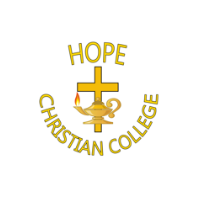The Pursuit of Safe & Equitable Remote Learning: Three Success Stories
April 29, 2020

The creation of equitable learning environments is a key aim for education in Australia and New Zealand, but it’s a challenging goal and one that took on an entirely new dimension recently with the need to roll out remote learning programs. We followed three schools as they took up the challenge and proved that, although bumpy, the road to equitable learning is well worth the journey.
Education institutions have shown a steely nerve as they guide their school communities through these supremely challenging times - not least of all in the planning and executing of remote learning programs. With such a heavy reliance on technology, ensuring every student can access these programs can be a difficult proposition.
“We are committed to delivering remote learning equitably and safely.”
— Greg Whitby, Executive Director, Catholic Education Diocese of Parramatta
Devices owned and used by schools on campus ensure students have access to the technology they need while on school grounds. But at home, the situation is often very different. Not every child, or even every family, has access to a learning device in the family home. As many schools have identified, sending school-owned devices home with students significantly contributes towards the goal of providing equitable remote learning environments. The solution seems simple in theory, but it does present several significant hurdles. The first of these is online safety.
Safety Beyond the School Gate
At school, generally, students are safe online thanks to the protected school network. While at home, parental controls are used by less than 10% of parents, according to the eSafety Commissioner. In the current environment of working from home, to think that parents will be able to watch over their children’s internet use at all hours of the day is short-sighted and unfair. With the possibility students could access potentially harmful content on school devices, questions arise around school ICT policy and duty of care. Beyond the school gate, these issues are extremely difficult to administer with traditional policies.
Access to Distraction
The second issue pertains to students staying focussed in the face of unfettered access to digital distractions - at their fingertips for the entire day. Ensuring school-owned devices are being used for learning, rather than for gaming or social media, is critical to the success of remote learning programs.
To support schools in this difficult time and help overcome these challenges, Family Zone has made their filtering tools available to schools on a short-term, per device basis.
To find out more, please click here.
Below, we take a look at three quite different educational institutions that have implemented this initiative and are successfully delivering more equitable and safe remote learning.
Success 1: The Small Primary
 St. Joseph's Primary
St. Joseph's Primary
Students - 90
Technology - iPads
St. Joseph's Primary School in Red Cliffs, Victoria is a primary school of approximately 90 students. The school offers a contemporary approach to student learning and believes all students can benefit from learning about and working with the many forms of technologies that shape the world in which we live.
In 2016 they implemented an innovative ‘1:1 Technology Program’ for all children, where every child received their own iPad. Each student uses this device equipped with educational Apps, opening up new possibilities for learning and making it easier to exploit existing learning opportunities. With the likelihood of remote learning becoming more apparent, St. Joseph’s moved very quickly to ensure safe and equitable remote learning. Family Zone assisted with the smooth deployment of protection on all of these school-owned iPads. Once rolled out, all of the school-owned iPads were protected from harmful content at all times, ensuring every child from the school can continue to safely access their learning technology program during remote learning.
“Moving to remote learning was an opportunity to send devices home to enhance our new way of learning. We stumbled across Family Zone and knew this was a great way to ensure our remote learning on devices was delivered safely. Our first two weeks of remote learning have been a huge success. If we make the move to sending the iPads home after remote learning has concluded, we will definitely use Family Zone’s filtering tool for the devices.”- Mark Gibson, Principal, St. Joseph's Primary School
Success 2: The Junior & Senior College
 Hope Christian College
Hope Christian College
Students - 350
Technology - Windows laptops
Hope Christian College is a non-denominational Christian school in Roelands, Western Australia. They have a vision to help each student realise their own true potential within a welcoming, caring and safe community that is respectful of each individual and the school community as a whole.
The school has been very proactive and thorough in implementing its Online Learning program, including drawing up and distributing to parents and students Acceptable Use of School Technology Guidelines and an Online Learning Policy. Both of these documents were discussed between parents and students. Hope Christian College’s partnership with Family Zone forms part of this policy, providing their school with the ability to restrict and monitor online activity on approximately 120 school laptops. The combination of solid school policy and Family Zone technology helps ensure online learning at Hope Christian College is safe, transparent and effective.
“It has been a great peace of mind knowing that students will continue their learning online safely.”- Gavin Knepscheld, Teacher, Hope Christian College
Success 3: The Large Education Diocese
 Schools - 80
Schools - 80
Students - 43,000
Technology - Chromebooks & personal devices
Catholic Education Diocese of Parramatta provides quality learning and teaching in a faith-centred environment in its 80 schools and five early learning centres in western Sydney. The Diocese took swift action to address equitable learning opportunities by deciding to send school-owned devices home to help ensure all students have access to online learning. Recognising the importance of those devices remaining safe and protected, the Diocese partnered with Family Zone to provide cyber safety. Within 24 hours of showing its capabilities, Family Zone was being rolled out across more than 13,000 devices.
The partnership helps to create a safe online learning environment for the students in its 80 schools, protecting students while they are learning from home on devices loaned from the schools. Parents also have the option to use the solution on the students’ personal devices at no cost, providing much-needed peace of mind during a challenging time for schools and families.
“This partnership (with Family Zone) means a safer online learning environment for our students.”- Greg Whitby, Executive Director, Catholic Education Diocese of Parramatta
Topics: Cyber Safety, 1:1, coronavirus, remote learning, equitable learning, BYOD, online learning
Would you like some more information? Or a demo?
Get in touchSubscribe to our newsletter
Popular posts
Recent posts
ySafe | A Wake-Up Call for Australian Digital Parenting: 5 Key Takeaways from Adolescence
Netflix's series Adolescence offers a sobering glimpse into the digital lives of today's youth. It shines a light on the chaos of Instagram ...
ySafe | Understanding the Hidden Meanings Behind Emojis
Insights from Netflix's Adolescence for Australian Schools and Parents Netflix's recent series Adolescence has ignited discussions about ...
ySafe | How to Talk to Your Teen About Adolescence: Insights from ySafe
At ySafe, we’ve spent years engaging with young people about some of the most difficult online safety challenges they face. We know that ...
From Hesitation to Confidence: What Pastoral Alerting Can Do During School Hours
Many schools hesitate to implement digital monitoring tools—often referred to (sometimes unfairly) as 'spyware'—out of concern for the ...